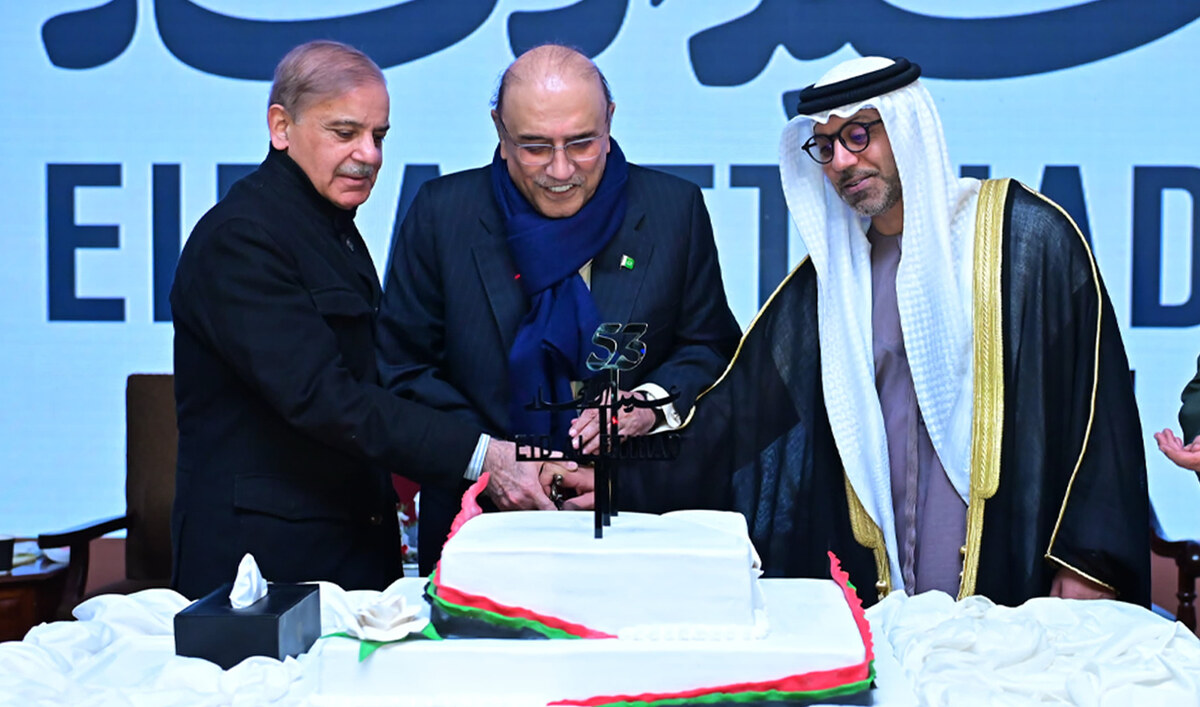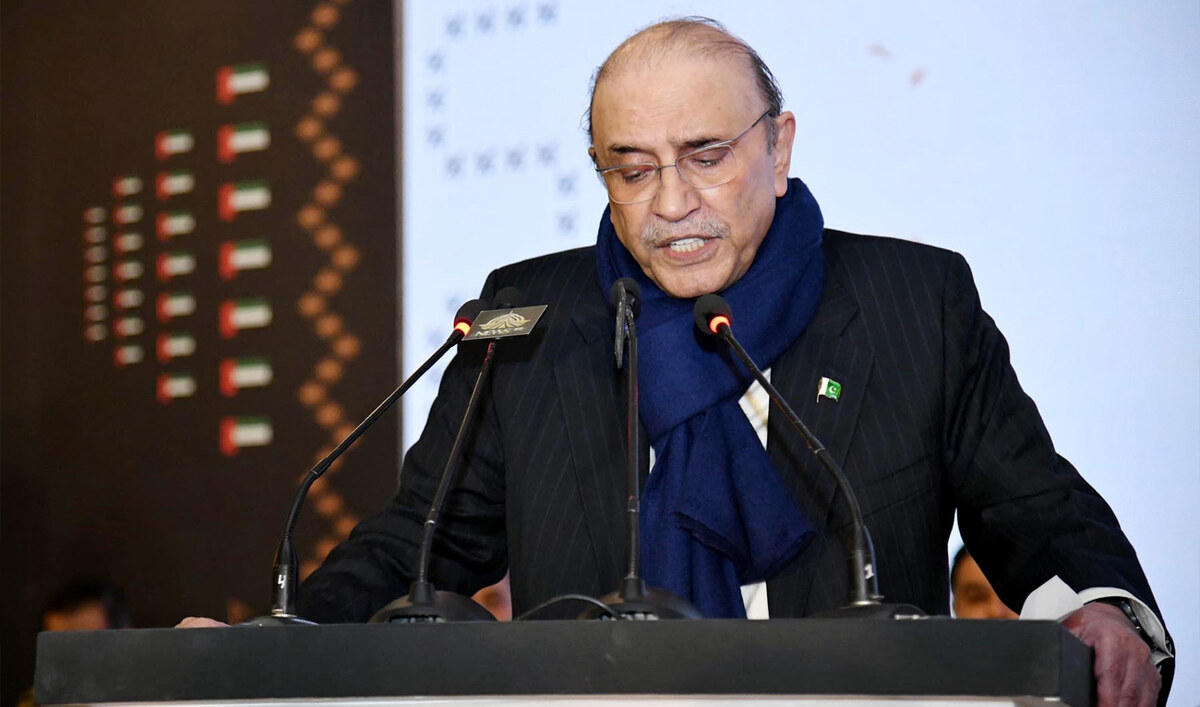ISLAMABAD: Prime Minister Shehbaz Sharif on Tuesday expressed gratitude to the UAE for working to streamline visas for Pakistanis wanting to travel to the Emirates, home to more than 1.5 million expatriates from the South Asian nation and its second-largest source of remittances after Saudi Arabia.
Sharif’s remarks come after months of widespread media reporting on a decline in visas for Pakistanis by the UAE and a decrease in overall overseas employment for nationals of Pakistan, allegedly due to their lack of respect for local laws and customs and for participating in political activities and sloganeering while abroad.
On Tuesday, the issue came up as Sharif addressed a ceremony in Islamabad to commemorate UAE’s National Day.
“We are very grateful [to UAE] for being host to a large number of Pakistanis and I am very grateful that the visa facility is being opened again and facilitated by the ambassador and UAE President Mohammed bin Zayed’s personal love for Pakistan,” Sharif said.

Pakistan President Asif Ali Zardari (center), Prime Minister Muhammad Shehbaz Sharif(left) and Ambassador of the United Arab Emirates to Pakistan Hamad Obaid Ibrahim Salem Al-Zaabi (right), cutting cake to mark the National Day of the United Arab Emirates, in Islamabad on December 17, 2024. (PID)
Last week, Hamad Obaid Ibrahim Salem Al-Zaabi, the ambassador of the UAE to Pakistan, called on Deputy Prime Minister Ishaq Dar and briefed him on steps being taken to streamline visas for Pakistanis. Previously, the foreign office has repeatedly said Islamabad did not subscribe to the “impression” that there is a ban on UAE visas for Pakistani nationals.
“If there are any issues that arise with respect to issuance of visas and stay of Pakistani nationals in the UAE, that are important agenda items between Pakistan and the UAE and we continue to discuss them,” the foreign office spokeswoman told reporters last month.
“STRATEGIC PARTNER”
The UAE is one of Pakistan’s largest trading partners and a major source of foreign investment, valued at over $10 billion in the last 20 years, according to the UAE ministry of foreign affairs. Trade volume between the two countries rose to $7.9 billion in 2023, up 12 percent from 2022.
In May this year, Sharif said the Emirates had committed $10 billion to invest in promising economic sectors in Pakistan. The Pakistan Business Council (PBC), set up this September at the Sharjah Chamber of Commerce and Industry, also aims to increase Pakistan’s bilateral trade volume with the UAE to $40 billion in three years.
“We are waiting anxiously for the visit of the President of UAE very soon and we are absolutely deeply engaged to promote investment, and trade,” Sharif said, thanking the UAE for its economic support to Pakistan, especially in helping meet external financing gaps that paved the way for the approval of an IMF loan program in September.
“Without UAE’s support, this program could not have been achieved,” the Pakistani PM said.
Speaking at the event, President Asif Ali Zardari said bilateral relations between the two countries had flourished into a “trustworthy strategic partnership across political, economic, and social dimensions.”
“The UAE remains one of Pakistan’s most significant economic partners and stands as one of the largest investors in Pakistan, and our bilateral trade continues to grow steadily,” the president said.

Pakistan President Asif Ali Zardari addresses the ceremony to mark the national day of the United Arab Emirates, in Islamabad on December 17, 2024. (PID)
“We are eager to enhance cooperation with the UAE in key areas including the Pakistan Stock Exchange, renewable energy and other promising sectors … I am sure that the recent signing of multiple agreements in diverse sectors including maritime legislation and aviation will further deepen our bilateral cooperation.”
UAE’s ambassador also addressed the ceremony and said the Emirates was committed to strengthening its partnership with Pakistan “as we see huge potential for collaboration in various sectors, including renewable energy, artificial intelligence, and agricultural innovation.”
















